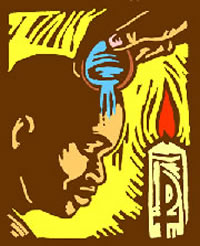
4th Sunday of Easter Year A
The image of Jesus, as a shepherd, established itself early in the outlook of the first Christians. The letter of Peter, identifying Jesus with the Suffering Servant of the Isaian writings, calls him their ‘shepherd and guardian’. It is a pity that this great theme is associated for many people with a sentimental image of the Saviour. Today’s gospel reading invites us to reflect that for Jesus himself the comparison would have suggested the rough and tumble of a world in which widespread poverty led to theft of livestock, and the disputes and violence arising from such a practice.
The image of the shepherd was long established in thebiblical tradition. It was used by the prophets to challenge Israel’s corrupt rulers; Israel’s Lord, the familiar psalm tells us, will care for them ‘like a shepherd’. When, in the passage following today’s reading, Jesus declares, ‘I AM the Good Shepherd’, he is making a messianic claim. In the sequence of John’s gospel, today’s reading follows immediately after the healing of the blind man. The implication is that the conflict between Jesus and the opponents whose bad faith had been demonstrated on that occasion could be compared to the conflicts that arose between honest shepherds and the thieves who preyed on them.
The shepherd theme gives rise in this passage to a whole complex of comparisons. They can be confusing if they are not considered separately. As our passage begins, Jesus compares himself with his opponents. He comes to God’s people with the ‘messianic signs’ that confirm his mission from the Father. His enemies, on the other hand, are robbing God’s people of the blessings he brings – using their authority to undermine the trust and enthusiasm with which he was initially received.
As the passage continues, Jesus – having identified himself with the shepherd who enters the sheepfold with proper authorisation – speaks of the relationship that exists between such a shepherd and his sheep. They recognise his voice when he calls them – as the common people did when he began his ministry. He knows them and leads them to pasture.
The obtuseness of those he is challenging leads Jesus to take up a new comparison – one that makes more clear the claim that he is making for his mission from the Father: ‘I am the gate of the sheepfold’. This comparison may have been suggested by words of Psalm 118, a psalm used as a processional hymn for the Feast of Tabernacles (cited several times in a messianic sense in the New Testament): ‘This is the gate of Yahweh, where the upright go in’. ‘I am the gate’ Jesus says, ‘Enter through me; you will be safe, and be sure of finding pastures’.
Through Jesus Christ our Lord – these words were to become one of the most meaningful phrases of the Church’s common life. In a sense, they sum up the whole of Christian faith: Jesus is for us, ‘the Resurrection and the Life’; he is the ‘mediator’ of the new and everlasting covenant; he is our ‘way to the Father’.
John Thornhill sm

